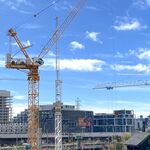299 bloor call control.
Senior Member
I posted this in the Toronto section, as there is some discussion of bringing trolleys back in Toronto. IMO it's ridiculous to replace the trolleys with hybrids.. basically a proven technology being replaced by one that has emerging problems.
Trolleys reach end of the line
Council votes 7-6 to scrap electric vehicles to buy 47 hybrid buses
Gordon Kent, The Edmonton Journal
Published: 7:14 am
EDMONTON - One of North America's last trolley systems will be unplugged by 2010 after Edmonton councillors decided Wednesday to scrap the vehicles and buy 47 hybrid buses instead.
The 7-6 vote pitted a group that wanted to keep the electric-powered trolleys as a hedge against rising oil prices against a majority swayed by reports indicating the city would pay an extra $100 million over 18 years to keep the fleet operating.
The swing vote came from Coun. Linda Sloan, the only councillor who didn't express an opinion during the lengthy council meeting or at a public hearing last week. "It came down to my belief ... LRT is the system we put millions of dollars into," she said later. "We need to expand it. To divide our investment between trolleys and LRT, I don't think is a prudent use of resources.
"I believe the LRT system should continue as the backbone of our transit system, and we couldn't invest in both."
Coun. Amarjeet Sohi was concerned that spending money on trolleys would not add service in communities that have been waiting years to see improvements.
Such a move might also make it harder for the city to push for increased transit grants, he said.
"If we're not using money wisely and are not demonstrating we're using resources effectively, we will not be able to make an argument (for funding) to other levels of government."
The debate over the future of the trolleys has come up repeatedly since the mid-1990s. Councillors voted in 2004 to keep the equipment until this year while alternatives were evaluated.
But senior transportation officials were unanimous in their opinion that trolleys, running on expensive overhead wires along a small number of routes, are too costly and inefficient to retain.
Just four of the 1,500 American transit systems still use the vehicles, and Vancouver is the only other Canadian city where they operate, transportation general manager Bob Boutilier said.
Production of the machines peaked in 1948, he said.
"Every dollar you spend on trolleys is money that's not being spent on other transit service and other transit technology."
University of Alberta engineering professor David Checkel wrote a consultant's report indicating the vehicles cost four times more to run per kilometre than diesel or hybrid buses, while producing more total air pollution because they use electricity generated by burning coal.
He accused his many critics of taking a "nostalgic" approach that doesn't reflect improvements in modern buses.
"I would rather see us spend money to put more buses on the streets so we can get more cars off the road," he said.
But Coun. Don Iveson said the information provided didn't consider a variety of important factors, such as the impact of increased population density along trolley routes. "We need to look beyond a snapshot analysis," he said.
Edmonton Transit will start next year to phase out its 40 trolleys, which were bought in 1982. They make up about three per cent of the city's total bus fleet.
Councillors hope to use some of the money saved by cutting trolleys to help pay for a $270-million plan to increase transit ridership by 50 per cent over the next five years.
gkent@thejournal.canwest.com




